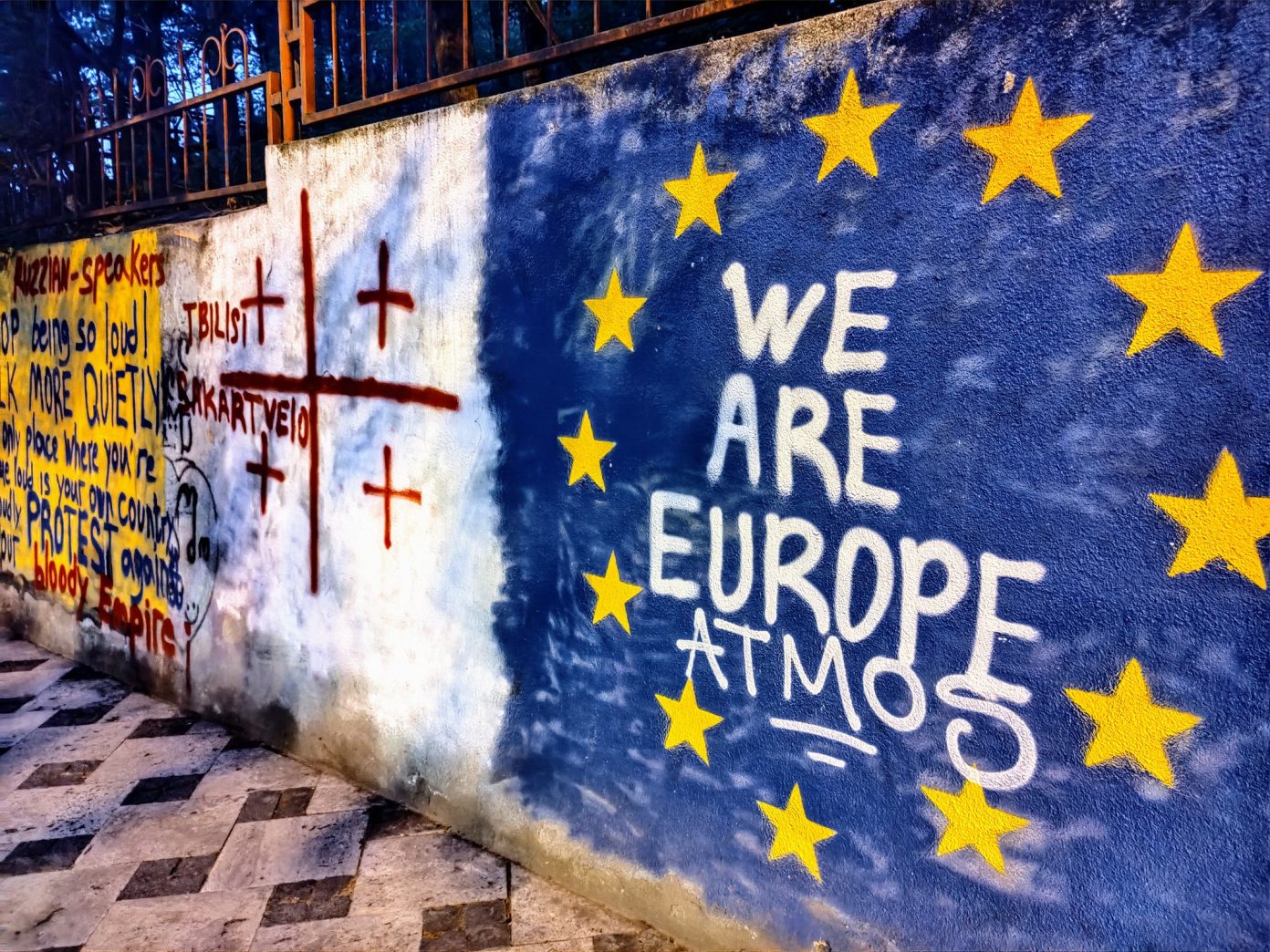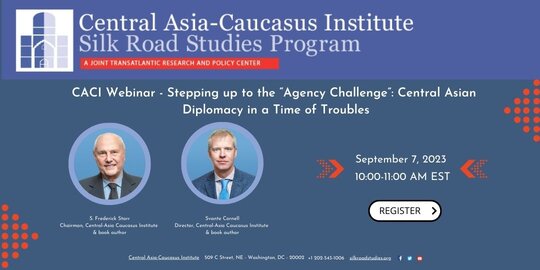A prime task of Russia’s State Security Service (FSB), successor to the KGB, is to devise and execute active measures in the sphere of foreign relations. During Russian President Vladimir Putin’s era, one of the most successful initiatives to arise from its headquarters in the infamous Lubianka in Moscow, has been the proposal to relaunch Track II (unofficial and backchannel) negotiations between Moscow and Washington.
When Putin concluded that official diplomatic contacts were failing to produce the results he wanted, he embraced the FSB’s proposals to establish an informal working group of retired US and Russian officials and experts who are “close to decision-making centers.” Meeting in picturesque locales and in a relaxed atmosphere that excluded neckties but could include swimming trunks, the respected participants, so it was thought, would be able to reach unexpected but useful conclusions that could then be couched in diplomatic language and transmitted privately to key policy makers.
To head the US delegation, the Kremlin would draw from the narrow circle of Americans whom it had judged to be agents of influence at the top of the US political beau monde and, at the same time, sympathetic to Moscow’s concerns. It would be led by an individual with long and positive links with the Kremlin. This person would be surrounded with an entourage of other Americans known to be sympathetic to Moscow – the kind of folks Vladimir Lenin once described as “useful bourgeois idiots.
Guided by these considerations, the organizers at the FSB’s headquarters in Lubianka named Army General Viacheslav Trubnikov, director of the foreign intelligence service, to head the Russian team; and Thomas Graham, former senior director for Russia on the National Security Council staff, to head the US “experts.” One of their early meetings took place on the Finnish island of Boisto, halfway between Helsinki and the Russian border, in June, 2014.
This session gave rise to the conceptual contours of the Minsk Accords, which Washington and Moscow jointly imposed on Ukraine. This agreement was nothing less than a modern version of the infamous Molotov-Ribbentrop pact of 1939, which specified Adolf Hitler and Joseph Stalin’s future spheres of control. Falling into line, Putin’s Minister of Foreign Affairs, Sergei Lavrov, would assert eight times that “we shall never allow Ukraine to get off the hook of the Minsk Accords.”
Graham and his group then briefed Jake Sullivan, US President Joe Biden’s director of the National Security Council, on the results of the meeting and on the working group’s further plans. We note that, for three months, the NSC maintained a stoic silence on the meeting’s existence and the group’s activities.
A denial finally came on July 27. On that day, the Moscow Times published an extensive interview with an “anonymous” head of the US negotiating group, who was visiting Moscow. The lengthy article was entitled “Former US Official Shares Details of Secret ‘Track 1.5’ Diplomacy with Moscow.” It featured an extended interview with the leader of America’s unorthodox team of self-styled diplomats. Though not identified by name, Thomas Graham waxed eloquent:
“They don’t know how to define victory or defeat. In fact, some of the elites to whom we spoke had never wanted the war in the first place, even saying it had been a complete mistake.
“But now they’re at war — suffering a humiliating defeat is not an option for these guys.”
Graham added: “It was here that we made clear that the US was prepared to work constructively with Russian national security concerns.” In doing so, he broke from the official US line of squeezing Russia financially and isolating it internationally so as to prevent it from continuing its war against Ukraine.
“An attempt to isolate and cripple Russia to the point of humiliation or collapse would make negotiating almost impossible – we are already seeing this in the reticence from Moscow officials,” Graham said.
“In fact, we emphasized that the US needs, and will continue to need, a strong enough Russia to create stability along its periphery. The US wants a Russia with strategic autonomy in order for the US to advance diplomatic opportunities in Central Asia. We in the US have to recognize that total victory in Europe could harm our interests in other areas of the world. Russian power is not necessarily a bad thing.
“If Russia thought it might lose Crimea,” the former official said, “it would almost certainly resort to [using] tactical nuclear weapons.”
Graham’s readiness to succumb to Putin’s nuclear blackmail is astonishing, but yet more so is his readiness then to propose US policies based on it. Never mind that he was then, and still is, employed by Henry Kissinger, and has no formal relationship with the US government.
Yet he confidently reported to the Russians that Washington would offer to help conduct fair referendums in the Russian-occupied territories of Donetsk, Luhansk, Kherson and Zaporizhzhia, in which residents would vote on whether they wished to be part of Ukraine or Russia. That tens of thousands of those residents had already fled or been killed by the Russian army attests either to his ignorance or cynicism, or both.
“The United States has not requested any official or former officials to open a back channel and is not seeking such a channel. Nor are we passing any messages through others. When we say nothing about Ukraine without Ukraine, we mean it.”
Finally, the most important thing: The above-mentioned published statements by Graham correspond closely with the concept of the war in Ukraine that both Sullivan and CIA director William Burns had been championing within the US administration for a year and a half. Not once have either of these two officials called for the return of all occupied territories to Ukraine, let alone uttered the words “Victory for Ukraine.”
For them, America’s objective in this major European war is not for Ukraine to win but to assure that Russia is not defeated. Devoted to this goal, they have delayed the delivery to Ukraine of weapons that are essential if it is to achieve a decisive victory, and even for its survival as a state.
Ukrainians are dying today because the Biden administration, paralyzed by the Burns-Sullivan philosophy of appeasement, refuses to act. Is it not high time for Speaker of the House Kevin McCarthy to do his job and bring Burns and Sullivan under oath to account for their private and secretive talks with Putin?
About the authors:
Dr. Frederick Starr, a co-founder (with George Kennan and James Billington) of the Kennan Institute for Advanced Russian Studies, is chairman of the Central Asia-Caucasus Institute, and has written two dozen books on Russia and the USSR.
Dr. Andrei Piontkovsky is a Russian scientist, political writer and analyst, member of International PEN Club who was forced to leave Russia in 2016. For many years he has been a regular political commentator for the BBC World Service, Radio Liberty, Voice of America. Piontkovsky is the author of several books on the Putin presidency, including Another Look into Putin's Soul and Russian Identity (published by Hudson Institute). In 2017, Piontkovsky was awarded the Andrei Sakharov Prize for “Courage in Journalism.” In 2019, he was recognized by the Algemeiner publication as one of the Top-100 People Positively Influencing Jewish Life.




